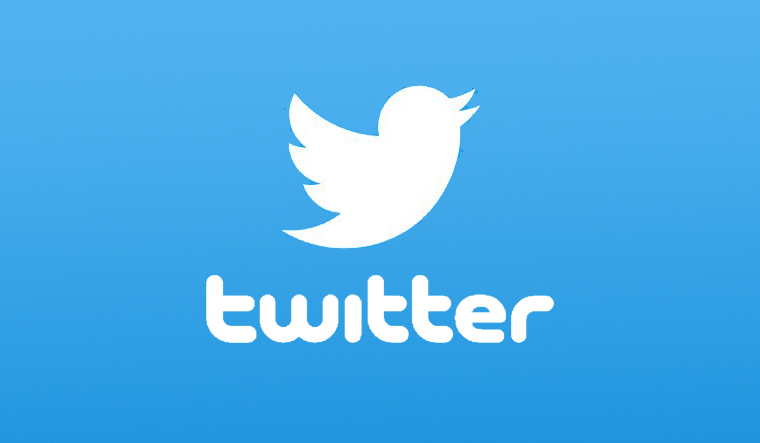Lift on Twitter ban: A triumph for patriotism, national security
By Dahiru Lawal “If there is no enemy within, the enemy outside can do us no harm” – African proverb When on June 4th 2021, the Federal Government announced the suspension of Twitter operations after the social media giant deleted a post by President Muhammadu Buhari for “violation of the company’s abusive behaviour policy”, some […]

Twitter logo
By Dahiru Lawal
“If there is no enemy within, the enemy outside can do us no harm” – African proverb
When on June 4th 2021, the Federal Government announced the suspension of Twitter operations after the social media giant deleted a post by President Muhammadu Buhari for “violation of the company’s abusive behaviour policy”, some Nigerians not only failed to understand why the decision was taken, they used strong words to condemn it, displaying lack of patriotism.
Many immediately initiated the process of circumventing a national proclamation, resorting to Virtual Private Networks (VPNs) to gain access behind the walls. This echo-chamber no doubt created a vista for more meddlesomeness from foreign quarters.
But it was not the first time Twitter had a showdown with sovereign powers. In 2019, the governments of China, Iran, North Korea, and Turkmenistan blocked access to Twitter. In Abu Dhabi and Dubai, Twitter users are prohibited from tweeting content that is contrary to public morals and the principles of that country.
Similarly, Turkey blocked access to Twitter in March 2014 in the run-up to local elections. It lifted the ban on Twitter after the social networking site complied with its request to remove photographs of a slain Istanbul prosecutor.
While it is easy to glorify these moves as repressive, the cradle of free speech, the United States, is equally guilty of the same. In September 2020, the Trump administration banned China’s TikTok and WeChat from mobile app stores. Administration officials said it was necessary to protect national security and prevent Beijing from exploiting the apps to collect user data or disseminate propaganda.
Though the Biden administration dropped the ban in June 2021, it included caveats that mandate accountability measures that TikTok does not currently have, including “reliable third-party auditing” of the app for possible security risk. It turned out that for each country, no matter how self-glorifying, national interest supersedes both internal and external usurpation.
This is one of the most vulnerable moments in world history. A time internet community coordination and mobilization is becoming a highly potent weapon for disruptive convergence; a time dissents are evolving from being pressure bodies to being more daring and lethal actors who defy civility, ruffle authority, invade sanctity and inflame nationality.
In an article I wrote in January last year, Between Nigeria’s EndSARS and US Capitol Insurrection, I highlighted that the situation “is creating a new dynamics for citizens agitations towards seeking redress over grievances and one can bet that every nation has its fair share of ups and downs, but national pride has always been the defining point between citizen patriotism and treachery”.
We may not be going through the best of times but in cases where we find ourselves on the brink, opening our doors to “sabi it all” meddlesome actors is a trajectory that is bound to injure our fledgling honour. Acts of interference and expression of diplomatic finesse is not a game of who cares more about the welfare of citizens of a country but a game of interest for which only the smart holds the ace.
The National Information Technology Development Agency (NITDA) issued a detailed public statement on what transpired before the lifting of suspension on Twitter operations in Nigeria. While we continue to hold our authorities to their responsibilities in our own different ways, Nigerians must learn to come through for their country in times like this.
Twitter’s compliance to FGs conditions before the ban is lifted proves beyond doubt that drastic times requires uncommon decisions. Complying to our own laws, being legally registered with the CAC, paying tax, screening inflammatory content, fake news and hate speeches, setting up local offices and employing Nigerian’s are enormous benefits that were worth the 7-months wait.
Citizens that used VON to hurl words at the FG are bound to benefit from the outcome of the same act they desecrated. This is indeed a triumph in patriotism, national interest and national security. It is a solemn reminder of the fact that we have our own peculiarities that should be driven by our own values, we do not need the dictates of external interests to determine and shape our journey.
While applauding citizens who are always meticulous in balancing their bias and national interest, I should reiterate the need for us all to be wary about enabling malign actors sowing division and amplifying conspiracy theories against our nationality. Disruptive insurrection against authority are being coordinated on social media. This, again, bring to the front burner the debate on free speech.
On the Twitter ban, Yes, we have had a very long and excruciating wait, but there is no denying that the gains incurred far outweighs the fatalities encountered. We have this singular Federal Government’s decision to thank for it.
Dahiru, Coordinator, Network of Advocates for Digital Reporting (NADIR) writes from Kano.
